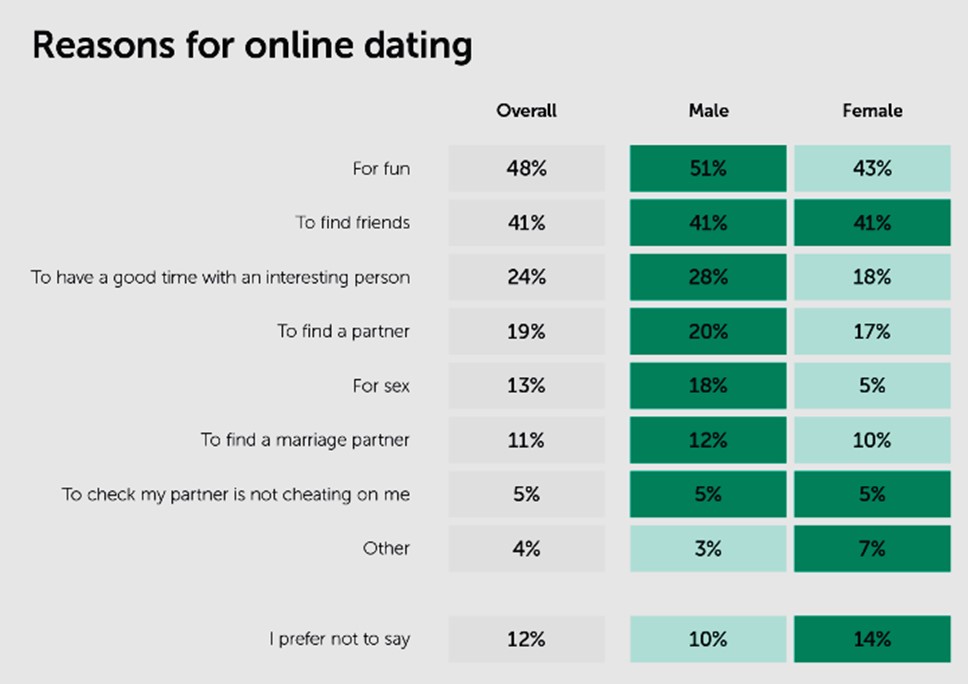When Fantasy Meets Reality
News Desk
Islamabad: Online relationships can range in intensity from mild to potentially dangerous. While some users take their online connections seriously and develop genuine relationships with people they have met online, others view them as a light kind of amusement.
Many users share real-life experiences, images and even private information without fully understanding the repercussions.
According to Kaspersky Lab survey 2017, as many as 32 per cent of Internet users are dating online.
In the modern world, the internet is a useful tool, but users should approach these relationships with caution and be aware to only share what is required and acceptable for the relationship.
But, when one person becomes obsessive and dominating, online interactions turn out to be toxicand harassment can arise. The anonymity of the internet might also give the harasser a false sense of security because they may not believe their acts will have real-world repercussions.
The dangers of online relationships are real and they should not be underestimated: Clinical Psychologist Ilsa Malik
“From catfishing to addiction, there are numerous hazards that can arise when engaging in online relationships. It is crucial for users to approach these relationships with caution and be aware of the potential consequences,” she added.
According to Malik, Catfishing is a major problem in the realm of online dating. When the genuine identity is eventually disclosed, using a false online identity can be emotionally damaging. The impact on one’s mental health and self-esteem could be quite detrimental.
Another important problem is online harassment, which can take many different forms, including bullying, cyber-stalking and cyber-bullying. The psychologist emphasised that this kind of harassment can have a detrimental effect on a person’s mental health and general well-being.
“Online relationships can also become addictive,” saysclinical psychologist, leading to a neglect of real-life relationships and responsibilities. This can have negative impacton work performance, as well.
Sharing personal information online might be dangerous because it might be misused for nefarious activities like identity theft, financial fraud, or even stalking.
The study found that one-in-ten (13 per cent) users of online dating websites admit that they give out personal data to matches within minutes or hours of starting a conversation. Additionally, the research showed that people who use online dating websites encounter cyberthreats more frequently than the average consumer.
Mental Health Expert Dr Mahmood Ur Rehman stated that doxing is another danger in online connections that can have a terrible effect on a person’s life. The act of gathering and disclosing someone’s personal information online without that person’s consent, including name, address, phone number, and even financial information–leads to the person being harassed, threatened, or intimidated, with potentially serious repercussions.
Internet relationships can start out as fun and non-serious, but they can quickly become a matter of concern: Dr Mahmood
adding that it is important to approach them with caution and be aware of the potential hazards; such as online harassment, addiction, invasion of privacy, emotional harm, and “even physical harm”.
In addition to clearly communicating expectations and boundaries, including what is and is not appropriate, the experts advise defining clear boundaries for protection.
Experts also stress the value of exercising caution when sharing information online, establishing clear boundaries with online partners, waiting to establish trust before disclosing personal information, and being wary of red flags.
Notwithstanding the risks associated with them, the internet and online connections are crucial tools in our linked society. It necessitates striking a balance between the many advantages the internet offers and the possible risks.
Source: Kaspersky Lab Survey 2017

Comments are closed.